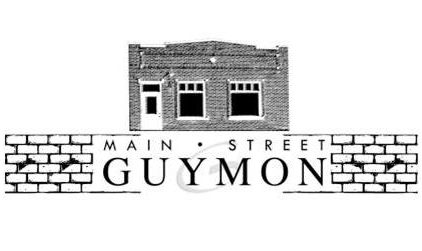We should all strive to do more than is expected of us. Here is one Okie that did that. You might not agree with his methods, but this man from Oklahoma left a real mark.
Patrick Jay Hurley was a highly decorated American soldier with the rank of Major General, statesman, and diplomat. He was the United States Secretary of War from 1929 to 1933. He was a self-made man born on Jan. 8, 1883, in a log cabin in Choctaw Nation, Indian Territory near Lehigh, Okla. Hurley worked as a coal miner and as a cowboy who had often hunted with Choctaw Indians during his teenage years before he saved enough to go to college. He graduated from Indian University, now Bacone College, in 1905 and received his law degree from the National University School of Law in Washington D.C. in 1908.
He started a law practice in Tulsa in 1908, one year after statehood. He was admitted to the bar of the Supreme Court in 1912 and was national attorney for the Choctaw Nation from 1912 to 1917.
He received a second law degree, from George Washington University, in 1913. While he was enjoying much success as a lawyer, Hurley had become active as a Republican in Oklahoma politics. Hurley also served in the Indian Territorial Volunteer Militia from 1902 to 1907 and in the Oklahoma National Guard, from 1914 to 1917.
During World War I, Hurley served with the Judge Advocate General’s Department of the 6th Army Corps, American Expeditionary Force, in France. He thus received the Army Distinguished Service Medal. In November 1918, Hurley was detached to the 76th Field Artillery Regiment and participated in the battles near Louppy-le-Château, France. Hurley voluntarily conducted a reconnaissance despite heavy enemy fire and so was awarded with Silver Star for gallantry in action.
After the war, he attended George Washington University. Active in the Republican Party, he was appointed Assistant Secretary of War by President Herbert Hoover in 1929. He was later promoted to Secretary of War and served in Hoover’s cabinet until 1933.
Hurley received a promotion to brigadier general (from colonel in the reserves) in 1941 when the United States entered World War II, and General George C. Marshall dispatched him to the Far East as a personal representative to examine the feasibility of relieving American troops besieged on the Bataan peninsula. Dwight Eisenhower, a staff officer in Washington, sent Hurley to Australia with $10 million in cash, to arrange supplies and charters for the Philippines. He was successful in delivering additional food and ammunition to the soldiers on three separate occasions but could not evacuate them.
After the conclusion of this mission, he embarked on a series of assignments as a personal representative of President Franklin Roosevelt. He served as minister to New Zealand in 1942 and then flew to the Soviet Union, the first foreigner to receive permission to visit the Eastern Front. Over the next two years, he visited the Near East, Middle East, China, Iran and Afghanistan on behalf of Roosevelt.
Hurley was assigned by Roosevelt to be his personal representative to Joseph Stalin in November 1942.
The first and potentially only high – ranking U.S. military officer to be granted access to Soviet combat operations on the Eastern Front, Hurley reported amiable relations with Soviet military officers.
When Hurley arrived in Tehran, he made a great impression by wearing cowboy hats and rejecting normal diplomatic protocols, with many in the Iranian élite used to strict diplomatic protocol saying they had never met a diplomat like Hurley. An Iranian-American historian, Abbas Milani, described Hurley as “an odd and eccentric character” who was “horrified” by the “abject poverty amongst the people and arrogant disdain for the populations by the British and Soviet ambassadors.” Hurley often met with Iranian officials, especially the young Shah, Mohammad Reza Pahlavi, who had inherited the Peacock Throne only two years earlier. Hurley had the responsibility of organizing preparations on the American side for the Tehran summit in November 1943.
He was appointed U.S. Ambassador to China in 1944. Despite being a Republican, Hurley had often worked with Roosevelt. On Nov. 26, 1945, Hurley submitted a scathing letter of resignation, two hours after he met with President Truman.
In 1950, when Senator Joseph McCarthy accused the State Department of being ridden with Soviet spies who were all “Communists and queers” and were the ones responsible for the United States “losing” China, Hurley publicly endorsed McCarthy in a 1950 speech. Hurley was the Republican candidate for a seat in the United States Senate for the state of New Mexico in 1946, 1952 and 1958, but he lost all three attempts against the Democratic candidate Dennis Chávez.
Both contemporary and modern assessment of Hurley have not been kind. Aside from Hoover himself, Hurley was the last living member of the Hoover administration. He died on July 30, 1963.
Major General Hurley served in two World Wars and received many decorations for bravery and distinguished service, including the Army Distinguished Service Medal with oak leaf cluster, Silver Star, Legion of Merit, Distinguished Flying Cross, Purple Heart, World War I Victory Medal with three battle clasps, Army of Occupation of Germany Medal, American Defense Service Medal, American Campaign Medal, European – African – Middle Eastern Campaign Medal, Asiatic Pacific Campaign Medal with two service stars, World War II Victory Medal, and Order of the White Eagle.
Keep on those New Year’s resolutions: Join a group or get involved with a program that has you make new friends, meet new people, do new stuff. This can help you blossom this year!
See you on the bricks!
